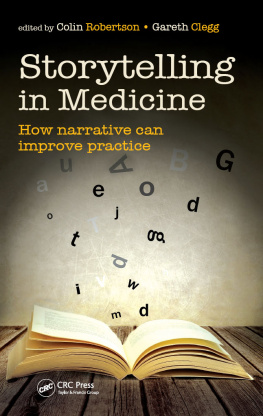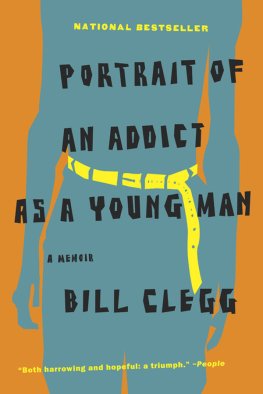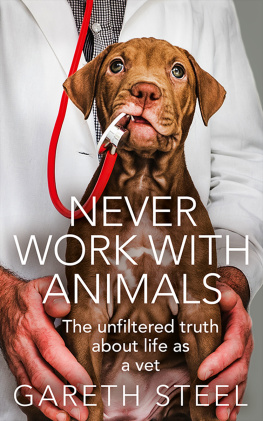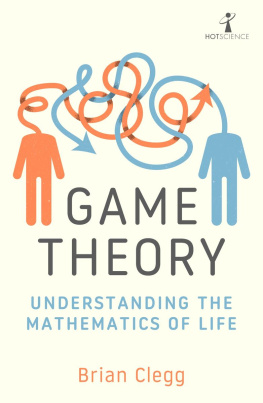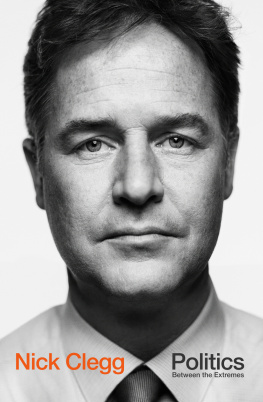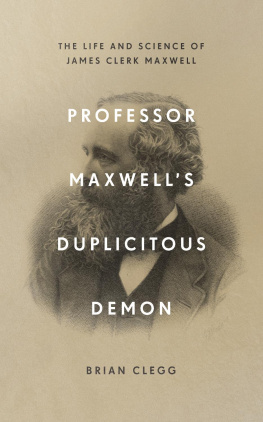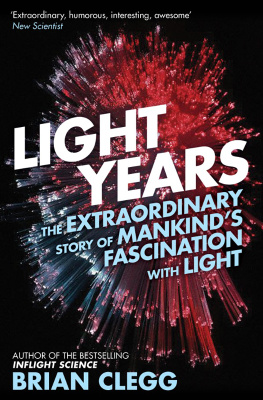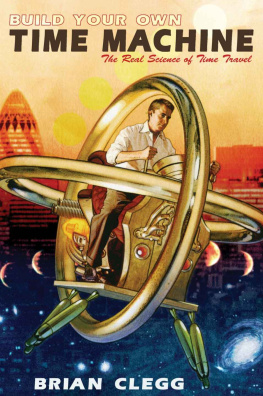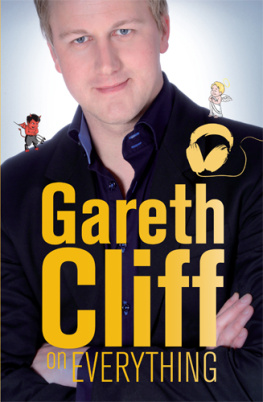Clegg Gareth - Storytelling in medicine: how narrative can improve practice
Here you can read online Clegg Gareth - Storytelling in medicine: how narrative can improve practice full text of the book (entire story) in english for free. Download pdf and epub, get meaning, cover and reviews about this ebook. year: 2016, publisher: CRC Press, genre: Home and family. Description of the work, (preface) as well as reviews are available. Best literature library LitArk.com created for fans of good reading and offers a wide selection of genres:
Romance novel
Science fiction
Adventure
Detective
Science
History
Home and family
Prose
Art
Politics
Computer
Non-fiction
Religion
Business
Children
Humor
Choose a favorite category and find really read worthwhile books. Enjoy immersion in the world of imagination, feel the emotions of the characters or learn something new for yourself, make an fascinating discovery.
- Book:Storytelling in medicine: how narrative can improve practice
- Author:
- Publisher:CRC Press
- Genre:
- Year:2016
- Rating:4 / 5
- Favourites:Add to favourites
- Your mark:
- 80
- 1
- 2
- 3
- 4
- 5
Storytelling in medicine: how narrative can improve practice: summary, description and annotation
We offer to read an annotation, description, summary or preface (depends on what the author of the book "Storytelling in medicine: how narrative can improve practice" wrote himself). If you haven't found the necessary information about the book — write in the comments, we will try to find it.
Clegg Gareth: author's other books
Who wrote Storytelling in medicine: how narrative can improve practice? Find out the surname, the name of the author of the book and a list of all author's works by series.
Storytelling in medicine: how narrative can improve practice — read online for free the complete book (whole text) full work
Below is the text of the book, divided by pages. System saving the place of the last page read, allows you to conveniently read the book "Storytelling in medicine: how narrative can improve practice" online for free, without having to search again every time where you left off. Put a bookmark, and you can go to the page where you finished reading at any time.
Font size:
Interval:
Bookmark:

Storytelling in Medicine
How narrative can improve practice
Storytelling in Medicine
How narrative can improve practice
Edited by
Colin Robertson
BA (Hons) MBChB MRCP(UK) FRCPGlas FRCS Ed FSA Scot
Honorary Professor of Accident and Emergency Medicine and Surgery
University of Edinburgh, UK
Gareth Clegg
BSc (Hons) MBChB PhD MRCP(UK) FRCEM
Senior Clinical Lecturer
University of Edinburgh, UK
and
Honorary Consultant in Emergency Medicine
Royal Infirmary, Edinburgh, UK

CRC Press
Taylor & Francis Group
6000 Broken Sound Parkway NW, Suite 300
Boca Raton, FL 33487-2742
2017 by Taylor & Francis Group, LLC
CRC Press is an imprint of Taylor & Francis Group, an Informa business
No claim to original U.S. Government works
Printed on acid-free paper
Version Date: 20160513
International Standard Book Number-13: 978-1-78523-137-7 (Paperback)
This book contains information obtained from authentic and highly regarded sources. While all reasonable efforts have been made to publish reliable data and information, neither the author[s] nor the publisher can accept any legal responsibility or liability for any errors or omissions that may be made. The publishers wish to make clear that any views or opinions expressed in this book by individual editors, authors or contributors are personal to them and do not necessarily reflect the views/opinions of the publishers. The information or guidance contained in this book is intended for use by medical, scientific or health-care professionals and is provided strictly as a supplement to the medical or other professionals own judgement, their knowledge of the patients medical history, relevant manufacturers instructions and the appropriate best practice guidelines. Because of the rapid advances in medical science, any information or advice on dosages, procedures or diagnoses should be independently verified. The reader is strongly urged to consult the relevant national drug formulary and the drug companies and device or material manufacturers printed instructions, and their websites, before administering or utilizing any of the drugs, devices or materials mentioned in this book. This book does not indicate whether a particular treatment is appropriate or suitable for a particular individual. Ultimately it is the sole responsibility of the medical professional to make his or her own professional judgements, so as to advise and treat patients appropriately. The authors and publishers have also attempted to trace the copyright holders of all material reproduced in this publication and apologize to copyright holders if permission to publish in this form has not been obtained. If any copyright material has not been acknowledged please write and let us know so we may rectify in any future reprint.
Except as permitted under U.S. Copyright Law, no part of this book may be reprinted, reproduced, transmitted, or utilized in any form by any electronic, mechanical, or other means, now known or hereafter invented, including photocopying, microfilming, and recording, or in any information storage or retrieval system, without written permission from the publishers.
For permission to photocopy or use material electronically from this work, please access www.copyright.com (http://www.copyright.com/) or contact the Copyright Clearance Center, Inc. (CCC), 222 Rosewood Drive, Danvers, MA 01923, 978-750-8400. CCC is a not-for-profit organization that provides licenses and registration for a variety of users. For organizations that have been granted a photocopy license by the CCC, a separate system of payment has been arranged.
Trademark Notice: Product or corporate names may be trademarks or registered trademarks, and are used only for identification and explanation without intent to infringe.
Visit the Taylor & Francis Web site at
http://www.taylorandfrancis.com
and the CRC Press Web site at
http://www.crcpress.com
Contents
Colin Robertson, Gareth Clegg
Graham Easton
Fiona Nicol
Jim Huntley
Jacques Kerr
Allan Cumming
Sarah Richardson, Colin Robertson
Jim Huntley
Colin Robertson, Fiona Nicol
Our profound gratitude to the many friends and colleagues who have, directly and indirectly, shared, stimulated and guided the stories and writing of this book. My particular thanks are due to David Currie, Eillyne Seow, Wilson Cheong, Mads Gilbert, Azra Hasan, Chris Robinson, Yuen Yen Ng, Andrew Stevenson, Lindsay Robertson and Corey Gill.
CR
To Alistair Bryce-Clegg, Eric Clegg, Denis Brazell, Nick Blair, Paul Gowens and Karl Martin for helping me appreciate the pleasure and power in good stories well told. Alice Clegg for helping me learn to listen better.
GC
Thanks to Katrina Hulme-Cross, Joanna Koster, Julia Molloy, Vivianne Douglas and Jamie Etherington for their assistance, direction and forbearance in its production.
CR and GC
Edinburgh
May 2016
Stories are the most important thing in the world. Without stories, we wouldnt be human beings at all.
Philip Pullman
The real problem is not precise language. The problem is clear language.
Richard Feynman
BECAUSE WE SWIM IN the river of change, we forget its pace. To paraphrase Arthur C Clarke, the Medicine that we practise would be Magic to our clinician forebears of even a century ago. Some humility is needed, however. Although frequently forgotten or marginalised, the largest contribution to human health and well-being has come from public health measures: the provision of clean water and sanitation, safe housing, reliable techniques of birth control, and employment. Added to this, immunisation and antibiotic and antiviral drugs have eliminated or dramatically reduced many of the scourges of infectious disease. Indeed, few students or younger clinicians have ever seen the common childhood illnesses such as measles, whooping cough or mumps experienced by their parents. Imaging techniques such as CT and MR scanning have transformed both diagnosis and treatment and have provided unique insight into physiological processes. Anaesthetic, critical care, innovative surgical techniques and transplantation have opened up treatment possibilities previously considered to be the realms of science fiction. The potential benefits of genomic diagnosis and treatments, promised for so long, are now becoming a reality, while controlled trials and evidence-based evaluation are now standard components of healthcare provision.
With these extraordinary developments an observer could be forgiven for considering that satisfaction with the state of medicine should be high. We live longer. In rich countries infant mortality is low. For most, death results from the diseases of senescence: cardiovascular and cerebrovascular disease, cancer and dementia. Wherefore then is the dissatisfaction of patients and practitioners? In any survey of patient experience communication failure comes high in the list:
The doctor looked at the screen, not at me.
I was talked at, not with.
I was asked a list of questions and expected to answer Yes or No.
Nobody listened to my story.
Clinicians commonly cite time pressures and targets to excuse these problems. They are feeble, diversionary justifications. Some specialists, focused solely upon their organ or disease of interest, fail to see the need to contextualise the patient and their problem. It is worrying to see it stated recently in a major medical journal: when physicians take into account the needs and circumstances (that is context) of their patients when planning their care, individualised health care outcomes improve (Weiner
Font size:
Interval:
Bookmark:
Similar books «Storytelling in medicine: how narrative can improve practice»
Look at similar books to Storytelling in medicine: how narrative can improve practice. We have selected literature similar in name and meaning in the hope of providing readers with more options to find new, interesting, not yet read works.
Discussion, reviews of the book Storytelling in medicine: how narrative can improve practice and just readers' own opinions. Leave your comments, write what you think about the work, its meaning or the main characters. Specify what exactly you liked and what you didn't like, and why you think so.

